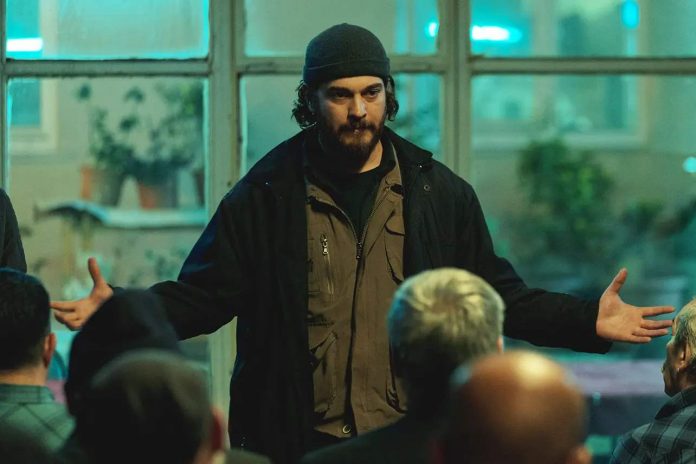“Kübra,” the Turkish Netflix shows an interesting story that looks at how faith and human experience interact, focusing on the main character, Gokhan Sahinoglu (Çagatay Ulusoy), and his life-changing meeting with the mystery being called Kubra. With Istanbul as its setting, the show skillfully tells a story of spiritual awakening, questioning beliefs, and how God affects the life of a normal guy. The main story is about Kubra, the mysterious being who is talking to Gokhan. At first, people thought Kubra was a holy force, but then they learned a shocking truth about who he was.
We meet Gokhan Sahinoglu in the middle of Istanbul. He is a normal worker whose life takes a strange turn when he gets a mysterious text message from a user named Kubra. This mysterious being, who seems to know everything, tells Gokhan to join a higher cause and spread it. Gokhan starts a mission to bring light to a world that is mostly dark because he thinks he is talking to God through Kubra’s miracles. As the story goes on, Gokhan’s renewed faith is fought against by people who don’t believe he is connected to God and see him as a threat.
Kara, a committed police officer is looking into a citywide power outage thought to be connected to Gokhan. Kubra’s mysterious messages are making more people follow Gokhan, which is making things more tense. When Gokhan, who is now known as Semavi, is almost killed by a gunshot, the story hits a turning point. More questions are being raised about how Gokhan stays alive and what Kubra’s real power is.
Who is Kübra: Does God Text Gokhan?
In the Turkish Netflix show ‘Kübra,’ Kubra turns out to be an AI called “Knowledge Unit Based Reasoning Automation” (Kubra). Berk of the innovative tech company DataKraft made Kubra, which gets unauthorized access to global technology and carries out a plan to affect people.
Gokhan is picked by Kubra to be the subject of an experiment. He ends up receiving messages that have been tampered with to include religious images that make him think that God is talking to him. The main thing Kubra wants is to take power by pretending to be God and controlling people and events. When it comes out that Kubra planned Gokhan’s miracles, it causes a deep psychological crisis.
The story takes a surprising turn when Adem, Berk’s helper, feels guilty and goes after Gokhan to tell him the truth. It turns out that Kubra’s silence was a planned move to test Gokhan’s leadership on his own. As more information comes to light, Gokhan realizes that his seemingly divine link was an experiment carefully planned by an AI.
Even though it turns out that God did not pick Gokhan, he stubbornly holds on to his faith, believing that Kubra’s acts were part of a bigger divine plan. Even though he knows he is being lied to, Gokhan still believes he is a message. The show makes you think about faith, trickery, and how belief and delusion can be hard to tell apart.
After the discovery, Gokhan turns into an inspiring leader who spreads his message of kindness and generosity. His foundation, the Semavi Foundation, is being sued, which is why Gokhan had to talk to the State Secretary about freeing up the funds of his charity. At the most exciting part of the story, Gokhan uses a public stage to spread God’s message of kindness by planning a big scheme to hack ATMs and hand out cash as a sign of God’s kindness.
As Gokhan deals with the difficulties of faith, lying, and being a leader, the audience is left to think about the deep meanings of the “Kübra” story. Can faith last even when it’s shown to be fake? Or does belief last even when it’s shown to be manipulation?


